Summer camp registration involves more than just filling out a name and address on a form. That’s especially true when it comes to education camps, whether robotics, science, math, coding, creative writing, or zoology.
For counselors and campers, the camp registration process is one of the most important parts of summer camp because it helps set the tone for what is going to happen at camp. In a manual about how to organize a science camp, the team with SciCamp notes that after defining the goals of the camp, developing a registration process is one of the key steps to setting up camp.
Your campers and their parents expect to jump right into camp activities on day one. In order to meet this expectation, camp counselors and teachers need to handle as much administrative work as possible before camp actually starts.
That’s where registration forms come in.
They are the perfect tools for learning everything you need to know about your campers before camp starts. By creating useful registration forms, you can gather relevant information and analyze the data from the forms to help you structure the camp and plan activities.
By collecting this data ahead of time, you’ll be prepared to get started without delay when camp participants arrive. You also save yourself and your staff the headache of trying to collect all the information at the door.
That’s why it’s crucial to ask the right questions on your registration forms, using a digital tool to help you manage the information.
Gather the data you need for a successful camp
Registration forms can be quite tedious for campers, parents, and counselors, especially when they are several pages long. But the information they ask for is too important to be cut from the form simply to make it easier to fill out. When developing the questions for your camp’s registration form, try to keep it succinct, but do include the questions you need to ask.
While all camps are different, there are some basic guidelines that apply to any camp registration form.
Demographic data
Of course, all registration forms should ask for necessary demographic information, which includes
- Name and nickname
- Address and phone numbers
- Date of birth and age at time of camp
- Grade level in school
- Parent and emergency contact information
Beyond the safety applications of this data, you will have an idea of the age range and grade-level capabilities of your campers, which will help you design age-appropriate activities before camp starts.
Health and safety data
Nothing is more important than the health and safety of your campers. It is vital that you include questions that concern the well-being of your campers. Be sure your registration form includes questions similar to these:
- Does the camper have any allergies (food, medicine, other)?
- Does the camper have any dietary restrictions?
- Does the camper have any medical issues that may affect participation in activities?
- Does the camper require special accommodations?
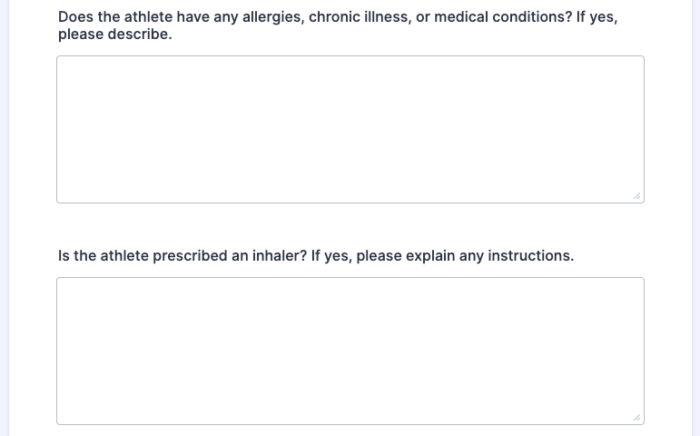
Interests and knowledge data
Your campers are there because they have an interest in the camp you are hosting. But it’s important to know more about each camper before they arrive. This will help you in both activity planning and camp structuring.
Your registration form should encourage campers to tell you more about themselves and their interests. Ask open-ended questions that require the camper to think about why they chose to attend your camp and what their expectations may be.
While the specific questions will vary depending on the theme of your camp, some of the general questions to consider include
- What is the camper’s experience with [camp theme]?
- Has the camper attended this camp, or a similar one, before?
- What are some of the camper’s hobbies?
- What is the camper most looking forward to at camp?
You may also consider having campers complete a personal statement. Ross Mathematics Program at Ohio State University uses one as part of their registration process. They ask some really great questions for campers to consider, such as
- What is an interesting mathematical problem you have worked on?
- What have you recently read about mathematics?
Similarly, the Girls Talk Math camp application has two long-form questions. One asks why the student is interested in attending the camp, and the other asks for the applicant’s interests. This approach encourages applicants to think more deeply and gives you more insight into their skills and knowledge.
An admissions test is often part of the application process required for math camps, together with recommendation letters from teachers. Awesome Math, which holds both year-round programs as well as three-week intensive summer camps, notes that applicants must complete an online application, submit a parent’s statement along with two recommendation letters, and then take the admissions test.
Armed with this data, you can complete many of your camp organization tasks ahead of time, such as making roll lists, planning meals, designing activities, and gathering supplies. With these tasks accomplished before campers arrive, you can focus your energy on making sure campers have an awesome camp experience from day one.
Keep data relevant and clean
Getting too much information or unrelated information is nearly as bad as not getting enough. And you’ve got to keep the data you do get clean in order to make the best use of it.
Limit the variables, the team at AI email marketing automation provider Retention Science advises. “Find a common actionable goal for data usage and eliminate as many variables as possible,” they write. And pay attention to the small things like formatting and duplicate or incomplete data fields. When determining what information you need, ask yourself if the data provides you with the result you’re looking for, they add.
As an example, an applicant’s last completed school level and grade are important data points when determining the grade level of the summer camp they will attend. However, data such as the names and ages of any siblings are superfluous. That information should be kept separate from the application data, possibly siloed into a marketing database.
Use digital tools to facilitate online registrations
The overload of information that comes with camp registration can be extremely intimidating. Digital registration forms are the perfect tool for collecting camper data and storing it for quick access without the hassle of paperwork.
Some of the key benefits of using software for digital registration are cleaner data, efficient organization, accurate data analysis, reduced data entry, and quick data accessibility, says Travis Ramos, marketing director at camp management software provider CampMinder. The bottom line, he adds, is that a digital tool lets you work smarter.
A powerful tool like Jotform can help you create forms, email them to applicants, and collect and store the data you need to register campers. With so much data to collect, you would be doing yourself and your campers a disservice by trying to collect and manage all of it manually.
Importing data into spreadsheets is also helpful in managing the information. By creating charts or graphs and tracking responses, you can get a visual of which campers are best suited to your camp. This streamlines the acceptance process and assists when organizing activities.
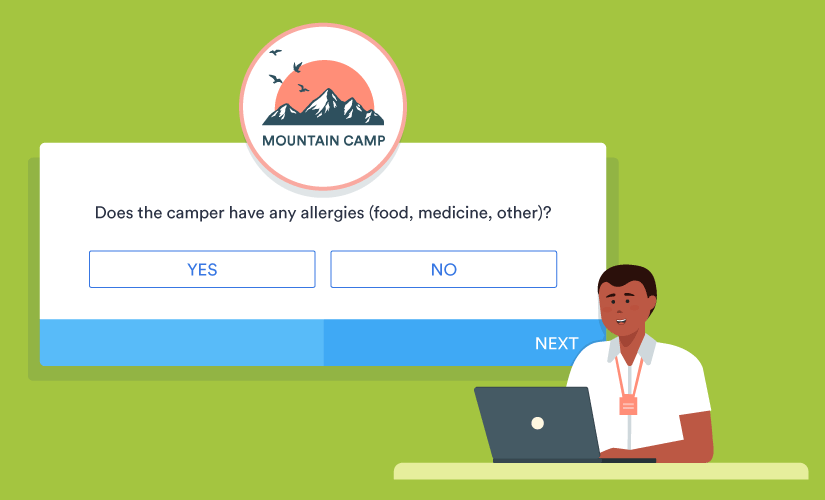

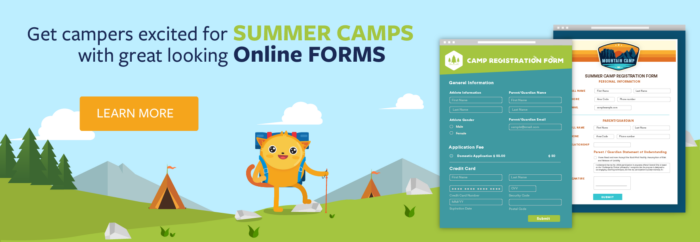

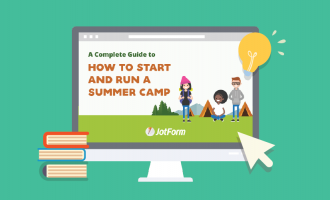
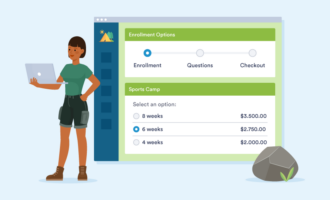



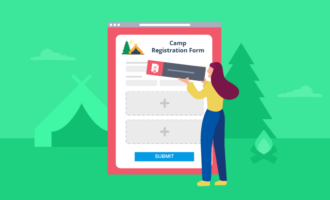












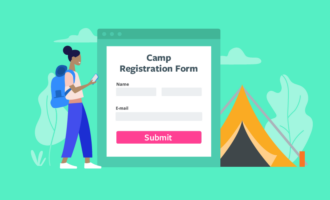







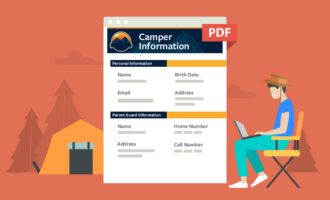



Send Comment: